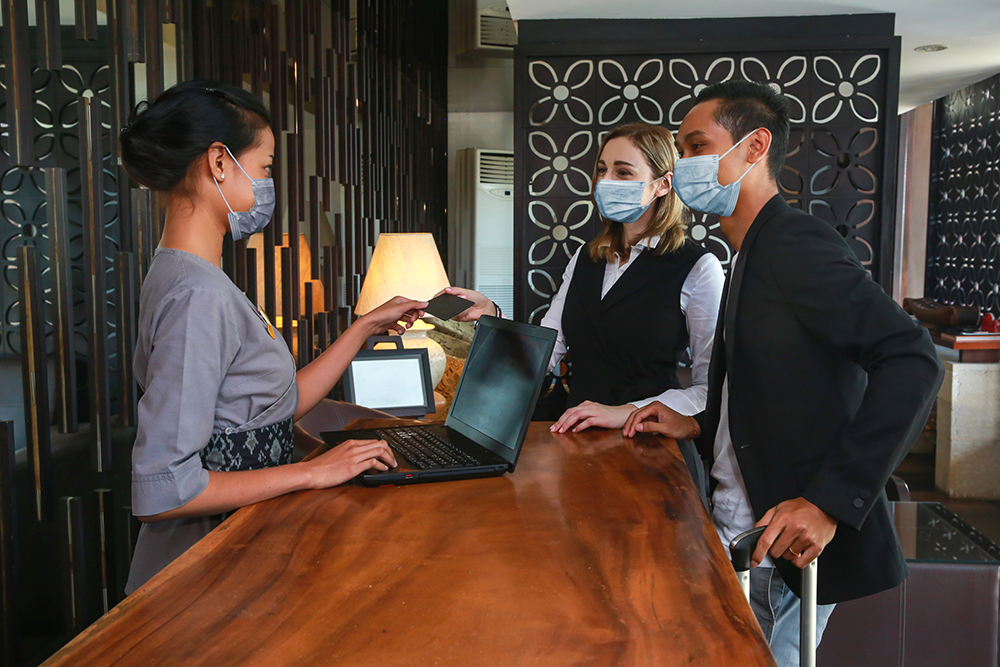
Space_Cat/iStock/Getty Images Plus via Getty Images
The News Media Alliance is a member of the COVID-19 Liability Coalition, organized by the U.S. Chamber of Commerce to advocate for the introduction of legislation that would ensure liability protection for businesses, nonprofit organizations, universities, and state and local agencies, which may be forced to defend against an onslaught of negligence lawsuits if a customer or employee comes down with the coronavirus. The threat of legal action and corresponding legal expenses could be a deterrent to businesses re-opening and getting local economies moving again, which is extremely important for news publishers’ local advertising clients. Additionally, litigation costs could devastate businesses that have stayed open and have already experienced months of crushing financial loss.
While Congress has acted to provide some limited COVID-19-related liability protections for volunteer healthcare providers and some manufacturers of Personal Protection Equipment (PPE) in the CARES Act, it is not enough to adequately protect the vast array of businesses now wary of re-opening during these unprecedented circumstances.
To aid the recovery of the U.S. economy, Congress is currently drafting legislation to grant liability protection to businesses. The legal protections themselves will be temporary and targeted. The legislation would mandate that protections be applied as widely as possible to protect organizations that could be subject to premises liability from exposure to the virus. However, implementing a blanket legal immunity is politically untenable. Therefore, the legislation would raise the minimum requirements to file a lawsuit from negligence to a charge of gross negligence or intentional misconduct.
Senate Majority Leader Mitch McConnell and Senator John Cornyn (R-TX) are leading the efforts to pass liability protections in the Senate. When thinking of the liability protection issue, one may think that it only applies to businesses, but the legislation being considered would also apply to hospitals, universities, churches and municipal agencies. In fact, the higher education community has been working with Congress to underscore the liability issues for colleges and universities. While they are doing their best to prepare for students’ return, there is a higher risk of infection based on schools’ inability to comprehensively police the actions of all students (e.g. ensuring social distancing and the wearing of protective face coverings). Thus, these institutions are fearful of virus-related lawsuits that discourage them from opening classrooms and conducting research in university labs. Universities, like businesses, are critical to the economic livelihood of many communities across the country. The potential inability of thousands of students to return to campuses could cause unprecedented economic devastation; not just to the institutions themselves, but also to their dependent Main Street businesses.
Liability protection will be a part of negotiations for the next stimulus package currently under debate in the House and Senate. Republican lawmakers insist that liability protections are necessary to ensure a smooth transition out of state lock-down and to jump-start our nation’s economy. Democrats, on the other hand, are wary of the potential consequences of such legislation. Speaker of the U.S. House of Representatives Nancy Pelosi argued that such legislation could remove employer responsibility for taking necessary safety precautions and would be dangerous to employees forced to return to work as the U.S. sees a new resurgence of coronavirus cases. Alternatively, the Democrat leadership is proposing an emergency addition to Occupational Safety and Health Administration (OSHA) standards outlined in the HEROS Act that would bolster workers’ access to PPE and prevent employers from neglecting OSHA safety regulations. However, this emergency worker protection standard is currently facing GOP resistance.
This issue likely will be settled in negotiations between the Senate and the House on the next round of the economic stimulus that is expected in the coming weeks. The August congressional recess will likely be postponed to ensure Congress enacts a stimulus package that settles this question of liability protection vs. enhanced OSHA regulation – or something in between. Stay tuned for an analysis of the compromise that is expected.

Paul Bascobert is an intern at the News Media Alliance.

